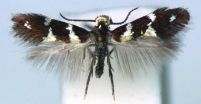SACRAMENTO, CA, February 24, 2012 (Press-News.org) Kershaw, Cutter & Ratinoff reports that the first of many hearings regarding the popular diabetes drug, Actos, has been scheduled to take place in Lafayette, Louisiana under U.S. District Judge Rebecca Doherty. The status conference will take place March 22, 2012, after which lead attorneys will be appointed for the consolidated cases.
According to an ongoing study involving more than 193,000 diabetes patients over the age of 40, those who took Actos to treat their diabetes for more than a year had a 40 percent higher risk of developing bladder cancer. Both France and Germany have halted sales of the drug since that news was published.
Kershaw, Cutter & Ratinoff filed suit* in November 2011 in Napa County Superior Court on behalf of a man who took Actos for a period of three years and subsequently was diagnosed with bladder cancer. The complaint alleges that Takeda knew about the link between Actos and bladder cancer, yet failed to warn patients. It is one of the Actos lawsuits being coordinated in the Louisiana Superior Court.
Thousands of other similar lawsuits are anticipated to be filed against Takeda Pharmaceuticals due to Actos' alleged associated risk for bladder cancer.
"This is another example of a dangerous drug that potentially creates an entirely new problem on top of the disease it treats," says Brooks Cutter, Kershaw, Cutter & Ratinoff partner and consumer protection advocate. "There are a number of other successful treatment options for diabetes. Quite simply, this drug should not be used."
The pharmaceutical lawyers at Kershaw, Cutter & Ratinoff encourage diabetes patients who have taken Actos for a year or more to contact a product liability attorney to discuss their rights. They note that many states restrict patients from pursuing legal action for certain time limits after discovering their medical product's potential for harm, so action should not be delayed.
For more information, send an email to Kershaw, Cutter & Ratinoff or visit their website at www.kcrlegal.com.
Kershaw, Cutter & Ratinoff represents plaintiffs in a wide range of personal injury lawsuits, pharmaceutical injury lawsuits and complex litigation. They have demonstrated their ability to devote substantial resources to lawsuits involving large corporations, generating hundreds of millions of dollars in recoveries for their clients and the classes they have represented.
*Rochester v. Takeda Pharmaceuticals America, Inc., et al., No. 26-57618 filed 11/15/2011 in Napa County Superior Court, California.
Actos Bladder Cancer Lawsuits to See First Hearing, Kershaw, Cutter & Ratinoff Reports
An initial court hearing date has been scheduled for the thousands of lawsuits against Takeda Pharmaceuticals over its best selling diabetes drug, Actos, which has been linked to an increased risk of bladder cancer.
2012-02-24
ELSE PRESS RELEASES FROM THIS DATE:
Brine Group Celebrates its 10-Year Anniversary
2012-02-24
Brine Group celebrates its 10 year anniversary as a successful recruiting firm providing outstanding placement services to its customers throughout the Metro Boston area and all the New England states.
*Our clients, with whom we have built critical business partnerships, have been a major component of this success.
*We are very proud of the many candidates that trusted us with their career searches along the way.
*At the pinnacle of our success are our employees who have worked so hard and committed themselves to servicing our customers and making Brine Group ...
More is better: Frequent or extended dialysis treatments benefit kidney failure patients
2012-02-24
Highlights
Frequent or extended dialysis treatments during the day or at night may improve patients' survival compared with conventional dialysis.
Nighttime or daily dialysis may also improve patients' health and reduce their need for medications.
Approximately 2 million patients in the world receive some sort of dialysis treatment.
Washington, DC -- Frequent and longer dialysis treatments may provide more benefits for patients than conventional dialysis treatments, according to several studies appearing in upcoming issues of the Journal of the American Society ...
Chicago's House of Blues Goes Green
2012-02-24
Last Thursday, February 16, 2012, The House of Blues in Chicago, IL featured hometown hip hop artist Nick Carter Green. The nearly sold out crowd rocked to the rhythms of jazz, funk, and rap as Green was backed by legendary percussionist Kahil El'Zabar. El'Zabar, also a Chicago native who has worked with Stevie Wonder, Nina Simone, Dizzy Gillespie and Paul Simon, called the show "a conversion of generations to celebrate the power of soul through hip hop."
Opening with his remix to Drake's "Headlines", which went viral on World Star Hip Hop back in ...
Genetic variants affect arsenic metabolism and toxicity in Bangladesh
2012-02-24
A large-scale genomic study conducted in Bangladesh has discovered genetic variants that control arsenic metabolism and elevate the risk of skin lesions in people chronically exposed to arsenic. In PLoS Genetics, researchers from the University of Chicago, Columbia University, the International Center for Diarrheal Disease Research in Bangladesh, and the University of North Carolina report that genetic variants found near the enzyme for metabolizing the chemical into a less toxic form are associated with an individual's risk of developing arsenic-related disease.
Since ...
For fish, fear smells like sugar
2012-02-24
When one fish gets injured, the rest of the school takes off in fear, tipped off by a mysterious substance known as "Schreckstoff" (meaning "scary stuff" in German). Now, researchers reporting online on February 23 in the Cell Press journal Current Biology have figured out what that scary stuff is really made of.
Within that chemical brew is a special type of sugar found in abundance in fish skin. When a fish is wounded, fragments of the sugar known as chondroitin sulfate alarm other fish nearby.
"Our results provide a solution to a 70-year-old puzzle: the nature of ...
Disarming the botulinum neurotoxin
2012-02-24
LA JOLLA, Calif., February 23, 2012 – Researchers at Sanford-Burnham Medical Research Institute (Sanford-Burnham) and the Medical School of Hannover in Germany recently discovered how the botulinum neurotoxin, a potential bioterrorism agent, survives the hostile environment in the stomach on its journey through the human body. Their study, published February 24 in Science, reveals the first 3D structure of a neurotoxin together with its bodyguard, a protein made simultaneously in the same bacterium. The bodyguard keeps the toxin safe through the gut, then lets go as the ...
Plastic Surgeon Comments on Tummy Tuck Advancements
2012-02-24
It's 2012, which for the plastic surgery industry means more advancements than ever before.
While groundbreaking technology and the emergence of new surgical techniques are exciting, potential patients should be sure that these innovations are time-tested before seriously considering them. A tummy tuck surgeon in Birmingham, Dr. Michael Beckenstein, stresses that patients should choose a surgeon based on the doctor's qualifications and experience with a particular procedure, and not just because he or she offers the "latest and greatest" treatments.
"As ...
Study: Evolution of earliest horses driven by climate change
2012-02-24
When Sifrhippus, the earliest known horse, first appeared in the forests of North America more than 50 million years ago, it would not have been mistaken for a Clydesdale. It weighed in at around 12 pounds -- and it was destined to get much smaller over the ensuing millennia.
Sifrhippus lived during the Paleocene-Eocene Thermal Maximum, a 175,000-year interval of time some 56 million years ago in which average global temperatures rose by about 10 degrees Fahrenheit, caused by the release of vast amounts of carbon into the atmosphere and oceans.
About a third of mammal ...
Genetic risk for elevated arsenic toxicity discovered
2012-02-24
One of the first large-scale genomic studies conducted in a developing country has discovered genetic variants that elevate the risk for skin lesions in people chronically exposed to arsenic. Genetic changes found near the enzyme for metabolizing the chemical into a less toxic form can significantly increase an individual's risk for developing arsenic-related disease.
The discovery could point the way to new screening and intervention options for people who are exposed to groundwater with high levels of arsenic, said scientists at the University of Chicago Medicine, Columbia ...
Italian vineyards invaded from North America by new species of leafminer
2012-02-24
Since in 2006 an unknown leafmining moth was found in North Italian vineyards by Mario Baldessari and colleagues, often in great numbers, scientists have tried to put a name to this apparently new invader. Italian scientists from the Fondazione Edmund Mach di San Michele all'Adige and the Università di Padova turned for help to taxonomists in the Netherlands and United States. The new species was described in the open access journal ZooKeys.
The family to which the moth belongs, the shield bearing leafminers (Heliozelidae) appeared to be poorly studied in North America, ...
LAST 30 PRESS RELEASES:
Brain cells drive endurance gains after exercise
Same-day hospital discharge is safe in selected patients after TAVI
Why do people living at high altitudes have better glucose control? The answer was in plain sight
Red blood cells soak up sugar at high altitude, protecting against diabetes
A new electrolyte points to stronger, safer batteries
Environment: Atmospheric pollution directly linked to rocket re-entry
Targeted radiation therapy improves quality of life outcomes for patients with multiple brain metastases
Cardiovascular events in women with prior cervical high-grade squamous intraepithelial lesion
Transplantation and employment earnings in kidney transplant recipients
Brain organoids can be trained to solve a goal-directed task
Treatment can protect extremely premature babies from lung disease
Roberto Morandotti wins prestigious Max Born Award for pioneering research in quantum photonics
Scientists map brain's blood pressure control center
Acute coronary events registry provides insights into sex-specific differences
Bar-Ilan University and NVIDIA researchers improve AI’s ability to understand spatial instructions
New single-cell transcriptomic clock reveals intrinsic and systemic T cell aging in COVID-19 and HIV
Smaller fish and changing food webs – even where species numbers stay the same
Missed opportunity to protect pregnant women and newborns: Study shows low vaccination rates among expectant mothers in Norway against COVID-19 and influenza
Emotional memory region of aged brain is sensitive to processed foods
Neighborhood factors may lead to increased COPD-related emergency department visits, hospitalizations
Food insecurity impacts employees’ productivity
Prenatal infection increases risk of heavy drinking later in life
‘The munchies’ are real and could benefit those with no appetite
FAU researchers discover novel bacteria in Florida’s stranded pygmy sperm whales
DEGU debuts with better AI predictions and explanations
‘Giant superatoms’ unlock a new toolbox for quantum computers
Jeonbuk National University researchers explore metal oxide electrodes as a new frontier in electrochemical microplastic detection
Cannabis: What is the profile of adults at low risk of dependence?
Medical and materials innovations of two women engineers recognized by Sony and Nature
Blood test “clocks” predict when Alzheimer’s symptoms will start
[Press-News.org] Actos Bladder Cancer Lawsuits to See First Hearing, Kershaw, Cutter & Ratinoff ReportsAn initial court hearing date has been scheduled for the thousands of lawsuits against Takeda Pharmaceuticals over its best selling diabetes drug, Actos, which has been linked to an increased risk of bladder cancer.





